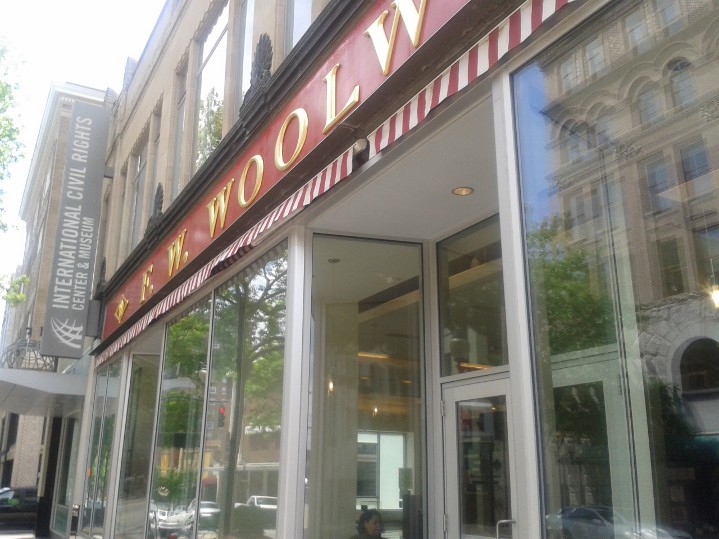
Last week – February 1st, to be exact – marked the 57th anniversary of the first sit-in at the Greensboro, NC F.W. Woolworth Co. store by the “Greensboro Four” (also referred to as the “A&T Four” because of their then-freshmen status at NC A&T State University).
On that day – not quite as long ago as we collectively may have fooled ourselves into believing – four men of color named Joseph McNeil, Franklin McCain, David Richmond, and Ezell Blair, Jr. (who later changed his name to Jibreel Khazan) acted upon a simple but courageous plan to protest social injustice by quietly taking a seat at a “whites only” lunch counter.
With this being Black History Month, I knew their example of leadership through action would serve as the perfect Monday lesson for our times. Our country appears to be sliding down a very slippery slope towards the very same social injustices of economic segregation and racial and religious discrimination that those four men “sat down” against. And in light of today’s dangerously overt and undercover displays of greed and hatred soaking into our social and political fabric, the timing couldn’t have been better for me to notice and comment on last week’s republished article from the February 2011 issue of Our State magazine titled “The Story of the Greensboro Four and the Sit-In Movement.”
I would say the part of their story that caught my attention the most was that those four young men individually noticed the injustices they and their parents and others like them endured. And, once they met each other on campus during their first semester of studies at A&T, they all immediately began talking and sharing their similar stories of racial discrimination and harassment. BUT, after a while, they realized all they did was talk about the injustices and complain about how their parents didn’t do anything to change the situation.
As the author put it, McCain remembered them thinking, “what right do we have to criticize our parents? This was the greatest time of our lives, and what had we done but criticize the folks who did the very best they could given a set of circumstances?”
And that, I believe, is the moment they became leaders. When they realized talk would not change their circumstances nor would blaming others for not taking action to do so. The moment they went from being talkers to doers is the moment they themselves became the leaders they wanted to see in their immediate lives.
Change is measured in different ways and over different periods of time. It can come over the course of three generations or it can come over the course of 90 minutes at a lunch counter. Either way, change is not merely a moment in time.
Change is the reaction to the moment in time.
-Michael Graff, Our State magazine contributor and author of the article
Mr. Graff wrote this article in 2011 after having viewed the historic photographs, artifacts, and other displayed sights and sounds during a tour of the then-newly opened International Civil Rights Center and Museum (housed in the very same Greensboro Woolworth store where the Greensboro Four’s sit-in took place). To him (and many of his readers), I’m sure, that ugly chapter in America’s history seemed to be just that – a chapter in history, part of our country’s past with views and actions well behind us all. I mean, at that time our country’s first African American president was in office. And President Barack Obama would go on to run for re-election the following year, win and serve another four-year term in office. Which came to a conclusion last month…
And here we find ourselves today discussing leadership, action, and the slopes of change and of history seeming to repeat itself (possibly worse than before). Or, if we look in fairness, the slopes go both down and up. And as Mr. Graff said in his article, “change is the reaction to the moment in time.”
The Greensboro Four decided to react not just by talking, but by taking the next three very important steps:
- deciding, in agreement (as a group, a team), to act
- making a precise plan of action (date, time, steps to follow, people to inform)
- following through on that plan and sticking with the agreed upon action
So, I leave you with this last thought – an oft used quote of Mahatma Gandhi’s:
“You must be the change you wish to see in the world.”
